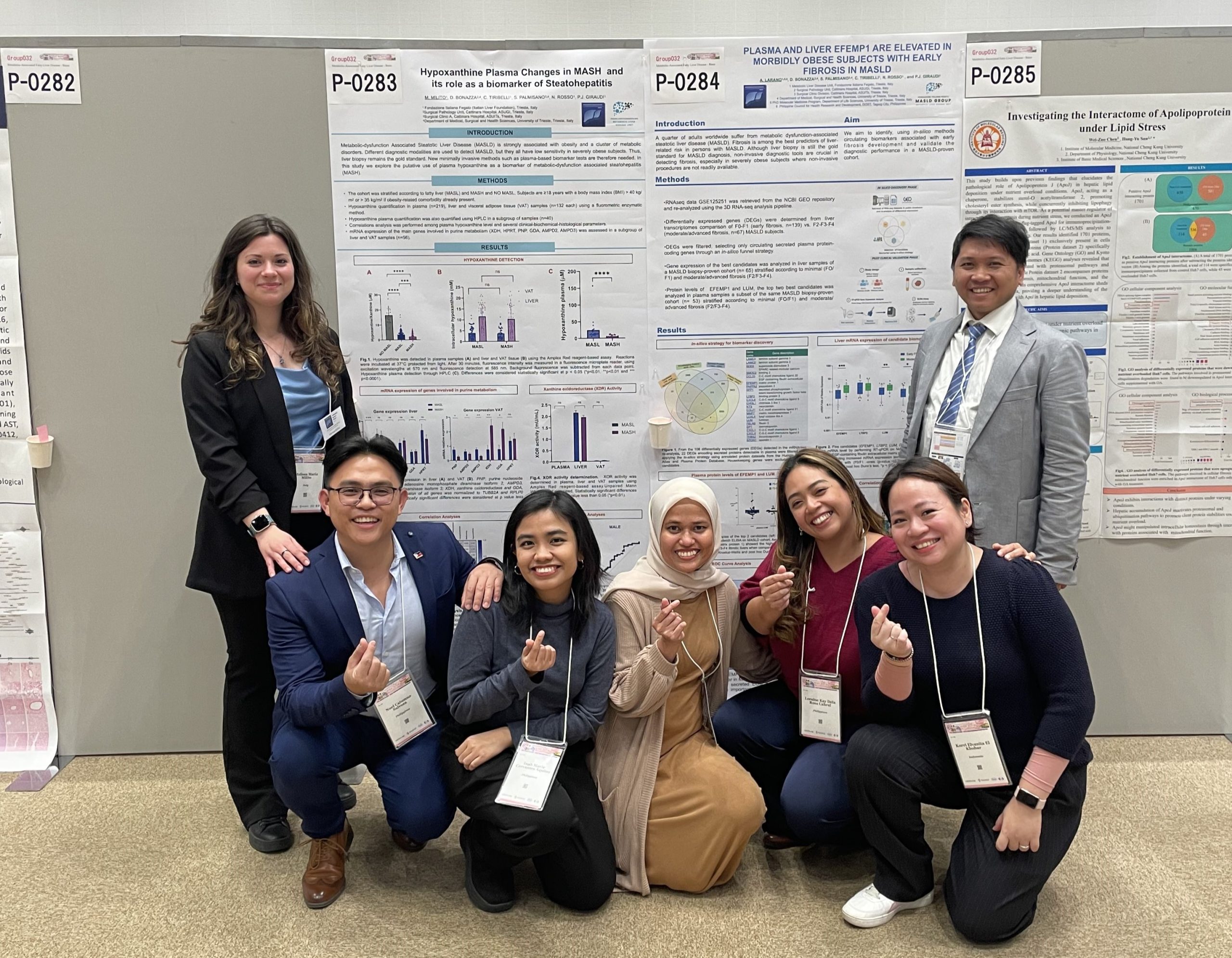NEWS AND UPDATES
DOST scholars present studies on the detection and treatment of liver disease in Japan

Five scholars of the Department of Science and Technology – Philippine Council for Health Research and Development (DOST-PCHRD) showcased their research findings on liver-related diseases to a crowd of global experts in the field during the 33rd Annual Meeting of the Asian Pacific Association for the Study of the Liver (APASL 2024) on 27-31 March 2024, in Kyoto, Japan.
Recognized as the largest scientific body in conducting research and developing improved treatment methods for millions of liver patients, particularly in the entire Asia Pacific Region, the APASL aims to advance hepatology science and practice to address liver diseases. The conference is an annual event that provides a platform for experts to exchange knowledge, discuss outcomes, and foster collaboration in liver disease research and treatment across the Asia Pacific Region.
Contributing to the global discourse on liver health advancements, the participation of DOST-PCHRD scholars underscores the country’s commitment to advancing liver health research. Featuring a diverse range of research topics focusing on liver cancer and metabolic liver diseases, the following are the highlights of the scholars’ presentations:
Liver Cancer Group
- Ms. Clarissa Garcia, an ongoing PhD in Molecular Biomedicine scholar (Batch 3) shared the results of her research, “Deciphering the novel functions of Aurora Kinase A in chronic liver disease” through a poster presentation
The study is the first to look at a protein called Aurora Kinase A (AURKA) as a possible sign of liver disease severity. By studying this protein and others in liver tissue samples, Ms. Garcia aims to find better ways to detect and treat liver disease earlier.
- Dr. Inah Marie Aquino, a graduate of the MD-PhD in Molecular Medicine program (Batch 5) presented the study, “Investigation on the tumor suppressor role of mir-3185 in hepatocellular carcinoma” through an oral presentation.
This study sheds light on how a molecule called miR-3185 affects liver cancer. It basically acts as a cancer fighter by slowing down a specific gene called SLC39A11, which helps to stop cancer cells from growing and spreading in the liver. This could ultimately open up new avenues for treating liver cancer.
- Dr. Loraine Kay Cabral, a graduate of the PhD in Molecular Biomedicine (Batch 1) program discussed her research titled. “Potential of combined therapy between sorafenib and SRC1 inhibitors in overcoming HCC heterogeneity” in a poster presentation
This study aimed to find better ways to treat liver cancer. In her research, Dr. Cabral found that combining sorafenib with SRC1 drug inhibitors could greatly reduce the aggressiveness of liver cancer cells, offering hope for more effective treatments in the future.
Metabolic Liver Disease Unit
- Mr. Allen Anthony Laraño, also an ongoing PhD in Molecular Biomedicine scholar (Batch 2) presented his research, “Plasma and liver EFEMP1 are elevated in morbidly obese subjects with early fibrosis in MASLD” through a poster presentation.
This study explored a new marker called EFEMP1, which could help detect early stages of liver scarring. By finding EFEMP1 in patients’ blood, it might be possible to spot liver damage sooner without invasive tests, improving how we manage liver disease risk.
- Dr. Noel Salvoza, also a graduate of the PhD in Molecular Biomedicine (Batch 1) program discussed his research titled, “Omentin-1: Implications on its role in diabetes and metabolic-associated fatty liver disease” in an oral presentation
This study looked at a new protein called omentin-1, which decreases in conditions such as diabetes and fatty liver caused by obesity. The findings of this study conditions could help create new drugs to help people with these health problems.
Three of the scholar-graduates, Dr. Salvoza, Dr. Cabral, and Dr. Aquino received support from PCHRD’s Support for Early Career Research Program. On the other hand, Ms. Garcia participated in the virtual research presentation.
Additionally, Dr. Cabral and Dr. Salvoza are the first batch of Filipino scholars to graduate under the PhD in Molecular Biomedicine program born from the partnership between DOST-PCHRD, University of Trieste (UniTS), and Fondazione Italiana Fegato (FIF). The scholarship aims to develop and implement a program focused on molecular hepatology within the PhD Program in Molecular Biomedicine of UniTS. This three-year scholarship program integrates basic research and clinics focusing on the study of molecular approaches to cancer biology, genetics, jaundice, and metabolic diseases in the liver.
The MD-PhD in Molecular Medicine Scholarship Program, on the other hand, is the first and only dual MD-PhD course offered in the Philippines that aims to train aspiring physician-scientists for careers dedicated to the advancement of health through biomedical research.
Currently, the Council implements seven scholarship programs, including three local and four foreign scholarship opportunities. Further details about these programs may be accessed through this link.




